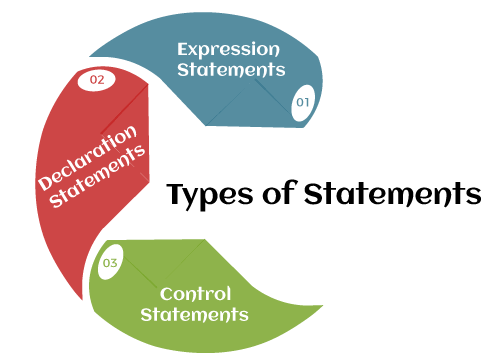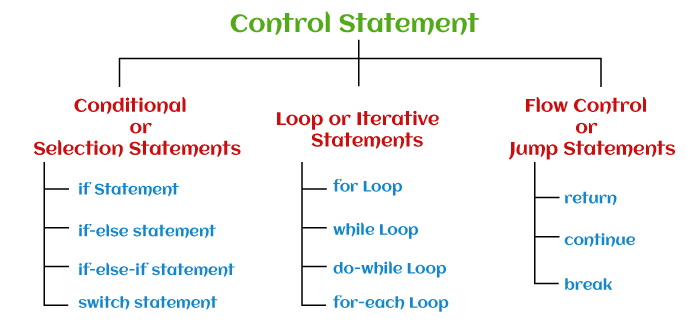Types of Statements in JavaStatements are roughly equivalent to sentences in natural languages. In general, statements are just like English sentences that make valid sense. In this section, we will discuss what is a statement in Java and the types of statements in Java. What is statement in Java?In Java, a statement is an executable instruction that tells the compiler what to perform. It forms a complete command to be executed and can include one or more expressions. A sentence forms a complete idea that can include one or more clauses. Types of StatementsJava statements can be broadly classified into the following categories:

Expression StatementsExpression is an essential building block of any Java program. Generally, it is used to generate a new value. Sometimes, we can also assign a value to a variable. In Java, expression is the combination of values, variables, operators, and method calls. There are three types of expressions in Java:
Declaration StatementsIn declaration statements, we declare variables and constants by specifying their data type and name. A variable holds a value that is going to use in the Java program. For example: Also, we can initialize a value to a variable. For example: Java also allows us to declare multiple variables in a single declaration statement. Note that all the variables must be of the same data type. Control StatementControl statements decide the flow (order or sequence of execution of statements) of a Java program. In Java, statements are parsed from top to bottom. Therefore, using the control flow statements can interrupt a particular section of a program based on a certain condition. 
There are the following types of control statements:
Example of Statement
Next TopicCompound Assignment Operator in Java
|
 For Videos Join Our Youtube Channel: Join Now
For Videos Join Our Youtube Channel: Join Now
Feedback
- Send your Feedback to [email protected]
Help Others, Please Share










